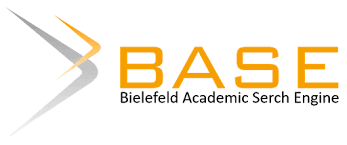PENGARUH PENGGUNAAN GAME EDUKASI QUIZIZZ TERHADAP MOTIVASI DAN HASIL BELAJAR KOGNITIF TINGKAT TINGGI SISWA SMP
DOI:
https://doi.org/10.59672/widyadari.v25i2.4129Keywords:
Quizizz, Learning Motivation, High-Level Cognitive Learning OutcomesAbstract
This study aims to determine the Effect of Using the Quizizz Educational Game on Motivation and High-Level Cognitive Learning Outcomes of Junior High School Students. This study is a type of Quasi Experimental research (semi-experimental) because in reality this study cannot fully control external variables that affect the implementation of the experiment. The research design used is nonequivalent control group design. The population in this study were all students in class VII and VIII of SMP Negeri 2 Marga (456 people) and SMP Negeri 4 Kediri (250 people). Meanwhile, the number of samples was 53 people from 2 Marga State Middle School and 56 people from Kediri State Middle School. The sample in each school was divided into two classes, namely the experimental class and the control class. Based on the study, the results showed that the average value of the learning motivation score of students in the experimental class (42.12) was higher than the control class (36.08). The t-test results showed a t value of 3.340 with a p-value of 0.002, indicating that the difference in learning motivation between the experimental and control classes was statistically significant (p-value <0.05). Meanwhile, the average value of students' high-level cognitive learning outcomes in the experimental class (83.31) was also higher than in the control class (81.13). The t-test results showed a t value of 3.136 with a p-value of 0.002, indicating that the difference in cognitive learning outcomes between the experimental and control classes was statistically significant (p-value <0.05). So it can be concluded that the Effect of Using the Quizizz Educational Game has a positive effect on Learning Motivation and High-Level Cognitive Learning Outcomes of Junior High School Students.
Downloads
References
Abdillah, Rendra Handy. (2020). Efekivitas BION (Bintang Online) dalam Meningkatkan Motivasi Belajar Siswa pada Masa Pandemi Covid 19 di Kelas V SDN 1 Ngembel. Jurnal Pendidikan Dasar Nusantara. Vol.6. No.1.
Abidin Zinal dkk. (2015). Pemahaman Siswa Terhadap Pemanfaatan Pembelajaran Berbasis Livewire Pada Mata Pelajaran Teknik Listrik Kelas X Jurusan Video di SMK Negeri 4 Semarang. Edu Elektrika Journal. Vo.4. No.1
Asmuni. (2020). Problematika Pembelajaran Daring di Masa Pandemi Covid-19 dan Solusi Pemecahannya. Jurnal Paedagogy: Jurnal Penelitian dan Pengembangan Pendidikan. Vol.7. No.4
Djamarah, Syaiful Bahri. (2011). Psikologi Belajar. Jakarta: Rineka Cipta. Efendi, Rinja dan Delita Gustriani. (2020). Manajemen Kelas di Sekolah Dasar. Jawa Timur: CV. Penerbit Qiara.
Heliandry, Luih Devi dkk. (2020). Pembelajaran Pada Masa Pandemi Covid-19. Jurnal Teknologi Pendidikan.Vol.22. No. 1.
I Made Surat, I Komang Sukendra, I Dewa Putu Juwana, B. P. C. (2023). Exploring The Horizontal And Vertical Mathematization Process In Realistic Mathematics Education To Prepare Students For The Era Of Industrial Revolution 5.0. IOSR Journal of Mathematics, 19(3), 1–9. https://doi.org/10.9790/5728-1903010109
Lestari, Endang Titiki. (2020). Cara Praktis Meningkatkan Motivasi Siswa Sekolah Dasar. Yogyakarta: Deepublish.
Lusiana. (2020). Penggunaan Aplikasi Online Quizizz Dalam Menganalisis Hasil Tes Kognitif Siswa Pada Materi Energi. SPEJ (Science and Phsics Education Journal. Volume 4. Nomor 1.
Ofianto dkk. (2021). Assesmen Keterampilan Berpikir Historis (Historical Thinking). Pamekasan: Duta Publishing.
Payadnya, I Putu Ade Andre dkk. (2018). Panduan Penelitian Eksperimen Beserta Analisis Statistik dengan SPSS. Sleman: Deepublish.
Prastinyo, Fendika.(2019). Peningkatan Hasil Belajar Peserta Didik Dengan Model Koopratif Jigsaw Pada Materi Di Kelas V SDN Sepanjang 2. Surakarta: CV. Kekata Grup.
Putri, Wahyu Andhika dkk. (2020). Penggunaan Audio Visual untuk Meningkatkan Motivasi Belajar Siswa Selama Masa Pandemi Covid-19 pada SDN 1 Serayu Larangan. ABDIPRAJA Jurnal Pengabdian Kepada Masyarakat. Vol 1. No.1.
Qomusuddin, Ivan Fanani. (2019). Statistik Pendidikan (Lengkap dengan Aplikasi IBM SPSS Statistik 20.0). Yogyakarta: Deepublish.
Razali, N. dkk. Gamification Elements in Quizizz Applications: Evaluating the Impact on Intrinsic and Extrinsic Student’s Motivation. IOP Conf. Series: Materials Science and Engineering 917,01202 IOP Publishingdoi:10.1088/1757- 899X/917/1/012024. 2020.
Ramdhani, Rahmi dkk. (2020). Platform Pembelajaran Daring: Teori dan Praktik. Yayaysan Kita Menulis. Suhartatik,
Rukajat, Ajat. (2018). Pendekatan Penelitian Kuantitatif Quantitative Research Approach. Sleman: Deepublish.
Sardiman. (2004). Interaksi & Motivasi Belajar Mengajar. Jakarta: Raja Grafindo Persada, cet.21.
Setyawan, Febri Endra Budi. (2017). Pengantar Metodologi Penelitian (Statistika Praktis). Siduarjo:
Siyoto, Sandu dkk. (2015). Dasar Metodologi Penelitian. Yogyakarta: Literasi Medai Publishing.
Sukendra, I Komang, Widana, I. W., & Juwana, I. D. P. (2023). Senior High School Mathematics E-Module Based on STEM Orienting to Higher Order Thinking Skills Questions. JPI (Jurnal Pendidikan Indonesia), 12(4), 647–657. https://doi.org/10.23887/jpiundiksha.v12i4.61042
Solikah, Halimatus. (2020). Pengaruh Penggunaan Pembelajaran Interaktif Quizizz Terhadap Motivasi Dan Hasil Belajar Siswa Pada Materi Teks Persuasif Kelas Viii Di SMPN 5 Sidoarjo Tahun Pelajaran 2019/2020. Jurnal Mahasiswa UNESA. Vol.7. No.3.
Sugiyono. (2017). Metode Penelitian Kuantitatif, Kualitatif, dan R & D. Bandung: Alfabeta.
Tony. (2020). BEST PRACTICE Implikasi Quizizz Berbasis Android Terhadap Kualitas Pembelajaran dalam Mencetak Siswa Berprestasi Di Tingkat Nasional. Ahli Book.
Unaradjan, Dominikus Dolet. (2019). Metode Penelitian Kuantitatif. Jakarta : Garfindo.
Wahyuningsih, Endang Sri. (2012). Model Pembelajaran Mastery Learning Upaya Peningkatan Keaktifan dan Hsil Belajar Siswa. Yogyakarta: Deepublish.
Zifatama Jawara. Santoso, Singgih. (2006). SSBBTI : SPSS Statistik Non-Parametrik+CD. Jkarata: PT. Alex Kompiutindo.
Downloads
Published
How to Cite
Issue
Section
License
Copyright (c) 2024 LPPM Universitas PGRI Mahadewa Indonesia

This work is licensed under a Creative Commons Attribution-NonCommercial-ShareAlike 4.0 International License.
Hak cipta mencakup hak eksklusif untuk mereproduksi dan mengirimkan artikel ini dalam semua bentuk dan media, termasuk mencetak ulang, memotret, mikrofilm dan reproduksi serupa lainnya, serta terjemahannya. Reproduksi dari bagian manapun dari jurnal ini, penyimpanannya di database dan transmisinya dengan bentuk atau media apa pun, seperti salinan elektronik, elektrostatik dan mekanis, fotokopi, rekaman, media magnetik, dan lain-lain, akan diizinkan hanya dengan izin tertulis dari penerbit jurnal.






1_(1).jpg)











